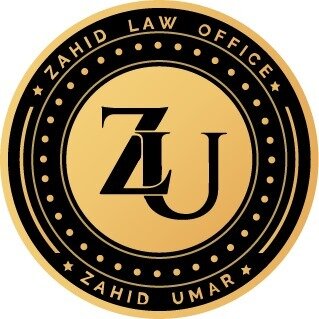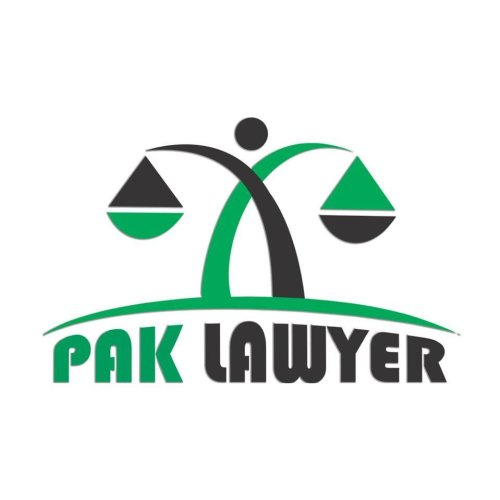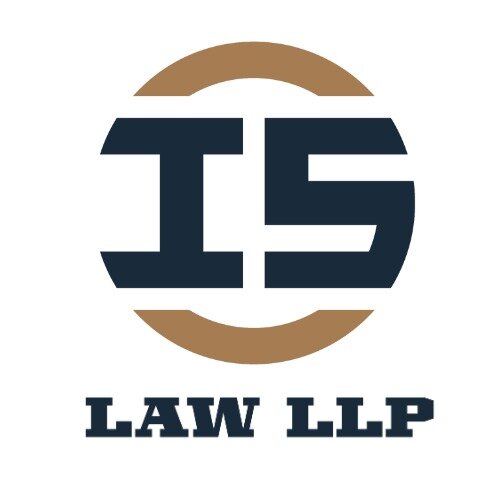Best Debt & Collection Lawyers in Lahore
Share your needs with us, get contacted by law firms.
Free. Takes 2 min.
List of the best lawyers in Lahore, Pakistan
Pakistan Debt & Collection Legal Questions answered by Lawyers
Browse our 1 legal question about Debt & Collection in Pakistan and read the lawyer answers, or ask your own questions for free.
- I need to send a legal notice of fraud
- I have given loan to a family and now they are not paying it back even after 3 years of wait. I need to send them a legal notice to settle the case in court if they will not pay it back. Is ot possible to first use legal notice... Read more →
-
Lawyer answer by Law Office Attorney SVETISLAV STOJANOSKI, LL.M.
Yes it is possible to first use legal notice.
Read full answer
About Debt & Collection Law in Lahore, Pakistan
Debt & Collection Law in Lahore, Pakistan, encompasses the legal framework that governs the collection of debts owed by individuals, businesses, or organizations. It aims to regulate fair practices for both lenders and borrowers, ensuring that debts are recovered efficiently while safeguarding the rights of all parties involved.
Why You May Need a Lawyer
There are several situations where seeking legal help for Debt & Collection matters can be beneficial:
- If you are owed a debt but the debtor is refusing to pay, a lawyer can assist you in taking legal action to recover the amount owed.
- If you have been wrongfully accused of not paying a debt, legal representation can help protect your rights and prove your innocence.
- In case you are struggling with overwhelming debt, a lawyer can guide you through options like debt restructuring or bankruptcy, helping you make informed decisions.
Local Laws Overview
Key aspects of local laws relevant to Debt & Collection in Lahore, Pakistan, include:
- The Contract Act, 1872: This legislation governs the formation, enforceability, and interpretation of contracts, including loan agreements.
- The Recovery of Debts (Laws) Act, 2016: It establishes the process for recovering outstanding debts through specialized debt recovery tribunals.
- The Insolvency Act, 1920: This law deals with the bankruptcy proceedings and insolvency matters, offering protection to debtors and outlining the process for debt resolution.
Frequently Asked Questions
Q1: Can creditors harass me to recover a debt?
A1: No, creditors are prohibited from using abusive or aggressive practices to collect debts. If you experience harassment, you can file a complaint with the relevant authorities or seek legal assistance.
Q2: What happens if I cannot repay my debt?
A2: In such cases, it is advisable to communicate with your creditor and explore options like restructuring the debt or negotiating a payment plan. If required, you can consult a lawyer to understand the available legal remedies.
Q3: How long can a creditor pursue a debt in Lahore?
A3: Under the Limitation Act, 1908, creditors generally have a time limit of three years to initiate legal action for debt recovery. However, certain circumstances or agreements may alter this timeframe.
Q4: What are my rights as a debtor?
A4: As a debtor, you have the right to fair treatment, protection from harassment, and accurate documentation of your debts. You are entitled to receive a notice before any legal action is taken against you.
Q5: Can I face criminal charges for non-payment of a debt?
A5: Generally, debt is a civil matter, and non-payment alone does not lead to criminal charges. However, if there is evidence of fraudulent activity or dishonesty, it may result in criminal action.
Additional Resources
- Lahore High Court: www.lhc.gov.pk
- National Database and Registration Authority (NADRA): www.nadra.gov.pk
- Pakistan Banks Association: www.pakistanbanks.org
Next Steps
If you require legal assistance for Debt & Collection matters in Lahore, Pakistan, consider taking the following steps:
1. Gather all relevant documentation related to the debt.
2. Research local law firms or lawyers specializing in Debt & Collection law.
3. Schedule a consultation with a lawyer to discuss your specific situation and explore available options.
4. Provide the lawyer with all necessary information and cooperate throughout the legal process.
5. Follow the lawyer's guidance and take appropriate action to resolve the debt-related issue.
Lawzana helps you find the best lawyers and law firms in Lahore through a curated and pre-screened list of qualified legal professionals. Our platform offers rankings and detailed profiles of attorneys and law firms, allowing you to compare based on practice areas, including Debt & Collection, experience, and client feedback.
Each profile includes a description of the firm's areas of practice, client reviews, team members and partners, year of establishment, spoken languages, office locations, contact information, social media presence, and any published articles or resources. Most firms on our platform speak English and are experienced in both local and international legal matters.
Get a quote from top-rated law firms in Lahore, Pakistan — quickly, securely, and without unnecessary hassle.
Disclaimer:
The information provided on this page is for general informational purposes only and does not constitute legal advice. While we strive to ensure the accuracy and relevance of the content, legal information may change over time, and interpretations of the law can vary. You should always consult with a qualified legal professional for advice specific to your situation.
We disclaim all liability for actions taken or not taken based on the content of this page. If you believe any information is incorrect or outdated, please contact us, and we will review and update it where appropriate.















